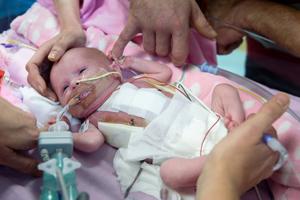After 14 months in hospital, a baby born with her heart outside her chest is finally going home.
Vanellope Hope Wilkins is thought to be the first ever baby in the UK to survive the incredibly rare condition known as ecto cordis, which was picked up on a scan when her mum was just nine weeks pregnant.





